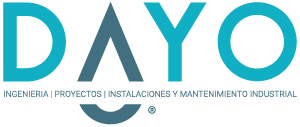ECONOMY AND RECYCLING OF INDUSTRIAL WASHING WATER
The water produced in industrial laundries can be recycled in many applications:
- Gardens;
- In the same laundry;
- Industrial use (cooling towers, boilers, cleaning, etc.);
- Water circuit, separated as in hotels for reuse in other services (sanitary facilities, etc.).
Characteristics of the laundry discharge water
- Depending on the size of the laundry, it produces a water flow of 80-150 m3 / day (one kg of clothes / 10 liters of water);
- Generates pollutants / pollutants with high concentrations of detergents, softeners and neutralizers;
- It has high temperatures, of the order of 55-65 ° C;
- They produce many foams;
The quality of the water is variable depending on the washing process and the time allocated
- Pre-wash at 45 ° C;
- Wash at 45 ° C with 10 g / l of detergent;
- Wash cold water 1
- Wash with cold water 2
- 3 cold wash + water purifier
- Centrifugation
- The total time per wash
The technology applied in recycling systems
- Combined ultrafiltration and nanofiltration systems are used for recycling;
- These are physical processes with membrane technologies;
- Working on solid-liquid medium pressure separation;
- It does not depend on the variability of water quality.
Advantages of reuse
- It is of the modular and transportable type;
- You can recycle 80-90% of the water;
- Minimum production of concentrates;
- Compatible with cleaning agents;
- Save energy by recycling hot water when it comes out at 35-40 ° C. Save about 44%;
- Very good hygienic quality of the water, as it is free of pathogens;
- In case of recycling, buy the download values at any receiver;
- It does not increase the salt concentration, on the contrary, it reduces it;
- As it has less salinity than water, it allows a detergent saving of the order of 10-20%, to obtain “soft” water with practically zero carbonate hardness;
- It does not totally depend on the water from the network or from other sources;
- Reduces costs for chemicals, energy, water purchase and discharge;
- Allows reuse for other applications.
Description and characteristics of the membrane processes
ULTRAFILTRATION:
- It is the physical separation of different substances through the pressure exerted on a membrane, passing water through it and retaining contaminants;
- The degree of separation depends on the size of your pores; Eliminates suspended solids and colloids that cause turbidity and pathogenic microorganisms present in the water;
- The pore size is 0.1 micron;
- They are processes that do not depend excessively on temperature;
- Applies to many other clarification processes, emulsion separation, sterilization, etc;
- The contamination of the membrane depends on the quality of the water. Adequate pretreatment is used to prevent fouling, as well as automatic backwash systems.
- It is also a system based on physical separation through a membrane and with reference to the molecular size of the water molecules;
- I work with higher pressures;
- All other features are characteristic of a membrane technology.
Advantages of the system
- Modular, compact and transportable systems;
- They take up little space and are useful for underground hotel installations, etc;
- Easy maintenance and low operational cost;
- Energy is only used for periodic chemical cleaning of some reagents;
- Eliminate or reduce pollutants / pollutants whose components are of medium / high molecular size and weight, eliminating Ca ions, harmful to washing, by consuming more detergents;
- The waste produced can be easily disposed of in a conventional treatment plant;
- Eliminates heavy metals and, in general, all bivalent and trivalent ions;
- Sterilize the water;
- Produce high quality water, continuously or discontinuously, without problems, according to needs;
- The water produced is suitable for reuse in the laundry, although it is recommended that the last wash be with tap water;
Conclusions
The use of water in laundries maintains the environment, since:
- Reduce the consumption of water from the network;
- Reduces energy consumption;
- Reduces maintenance and operating costs;
- 24 / 24h warranty service.




